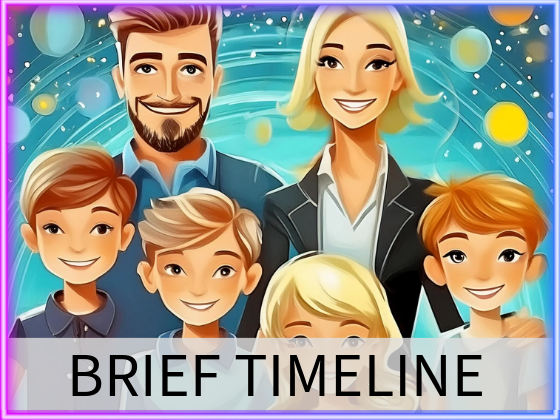i am Ekho Podcast: 007
Navigating the Financial Maze of Divorce with Melissa Murphy Pavone
SOCIAL MEDIA
SPONSORS:
- Marriott Hotels
- United Airlines
- Shopify (3 months at $1/month)
- Sticker Mule ($10 credit on your first order)
TRANSCRIPT
i am Ekho Podcast Studio (00:00.118)
I think the lack of communication around finances and money are a big contributing factor to divorce. Me having to come up with that sum of money to half the equity in the house plus half of all of this stuff plus having to refinance it, it would have priced me right out of that house.
i am Ekho Podcast Studio (00:25.838)
a certified financial planner and a certified divorce financial analyst. I've been in finance for over 18 years now, do holistic financial planning. So I studied and received the certified divorce financial analyst designation. And so now I really make it my mission to make sure people who are getting divorced understand the financial implications of it.
guide them through that transition. that's that is so helpful because that is one of the scariest parts of getting a divorce is the all the finances involved in it. But before we start talking about that, I want to ask you, are you a forensic accountant? I work I work with forensic accountant and a lot of times there are some overlap of what we can do regarding like separate property tracing and stuff that
to that effect, but I do work with forensic accountants and we refer each other clients depending upon the depth needed for the case. Okay, so there is a little bit of overlap over what you and a forensic accountant would do, but you are two unique spheres that someone going through a divorce may need to use in order to get their finances in order and prepared to go into court or to litigate a case, right? Correct, yeah.
Can you give us an example? If someone was going to a therapist and saying, I'm thinking about divorce, right? I'm in this toxic relationship, but I'm staying in it, you know, either one for the children or two for the finances. I don't know if I can afford to get divorced. And oftentimes that's concern, right? You have two incomes or one income and one house and you're like, we're barely making ends meet. How am I going to do this?
myself. Exactly. I so oftentimes I've referred that clients who are just kind of dipping their toes in the water thinking about it and saying like, I don't know where to start. And I always suggest that the first phone call should be a divorce coach or a mental health professional because you need somebody there emotionally because it's a roller coaster and there's not a direct line from hey, I'm gonna wake up one day.
i am Ekho Podcast Studio (02:50.656)
and like, I'm gonna get divorced and then it's just like four easy steps, right? I'm sure you can share your story. It's a roller coaster of emotions of steps forward, steps back. And so I always say the mental health aspect of a divorce should be primary. And then once that is kind of under control, the mental health professional or the divorce coach can really help guide you as to what other
players should be kind of on your divorce team. And me being a CVFA can help really just organize no matter which way you decide. If you decide to say, hey, we're gonna go to mediation or hey, I'm going to get a lawyer or I'm gonna go to collaborative or, know what, we're gonna stay together. Either way to get financially organized. I really help gather the documents that you're going to need.
and explain them to you and go through the titling of the assets, know the documents that all the lawyers or the legal professionals are going to ask you and that you're gonna need later. And so it's really, people always question like, well, I'm big on the divorce team, right? Like I think you need a team of people. It's not just, okay, go hire the biggest baddest shark in town. You need people that do different things and work collectively together. And it's actually,
more efficient and more cost effective to have that because you don't want to be doing document discovery with an attorney at $650 an hour. And you don't want to be talking to the paralegal or the legal assistant at $450 an hour venting about your bad day when you can have a CDMA help with the documentation and a divorce coach help with.
kind of like the vending sessions and moving through it. I agree. It's way less expensive to get the right people doing the right thing. So you're not playing your lawyer to be your therapist, as you say. Yeah. And so I help people who just, you know, sometimes they come and they're like, Hey, I'm thinking about it. I don't know what this would look like. Is this possible? Would I be able to survive? Would I be able to keep the house?
i am Ekho Podcast Studio (05:07.886)
you know, am I going to have to give away half my retirement? And so I kind of just go through the math with them, help them organize the documents and kind of give them some scenarios that could happen and prepare them for what some options are. And gone are the days of like, okay, 50, 50 and that's it. The beauty of mediation collaborative is that you can really design your own divorce and that allows you to do what's best for you and your family. So I just.
kind of educate and really empower people to know their numbers and know where their documents are. And if they don't know where they are, help them find it and get financially organized. Sometimes people end up staying together. Sometimes people don't come back until six months later and they're like, hey, thanks so much. I'm now ready to move forward. Now I know what statements I need. Here are the updated statements. Can we move forward? Sometimes they get brought in in the middle of the process.
And that could be either through a mediator or an attorney. Sometimes people are just stuck on one asset and they're like, hey, we don't know what to do about the house. The house is always a big one. Both our names are on the house. We don't want to the kids. We have a really good interest rate. We don't have a lot of assets outside the house. So we kind of play out the different scenarios. And I can kind of illustrate and say like, okay,
This is what would happen if you stay in a house. This is what happened if you sell the house. This is what happens if you jointly own the house for X number of years and then sell the house. So those are the types of things I can help kind of throughout the process. If you are going straight to that litigation, very tumultuous fighting court, you know, all that I have been brought in to be a financial advocate where
we think that there is financial abuse or there's financial infidelity or that there's hidden assets. So it really just depends where. And then kind of my favorite part is the post divorce transition assistance. And that's really like, all right, you're done with divorce, you're at this new chapter. And I kind of relate it to the fact of like, after you lose a loved one.
i am Ekho Podcast Studio (07:20.846)
You have the wake, you have the funeral, you have the services, the family, everyone's there kind of supporting you in there. And then it's over and everyone goes back, right? Everyone's gone. They go back to like their normal day-to-day life. And you're just like, huh, this is different. I'm not calling my lawyer. I don't have any meetings. I now have to pay bills by myself. Like I now have one less person at the dinner table. I have to RSVP one. So there's all these things. There's also all these financial things that you have to do afterwards.
And no one's really there for you. So I can assist in that kind of like 12 weeks after divorce to kind of really help get them on track and have an accountability partner, educate them about, you know, paying bills, updating their last name, checking their credit, you know, going on social security, all those things that need to be done, but you don't really know where to do and what to do and how to do it.
So those are all the ways that I can help. It depends upon where you are. And I sometimes it's start to finish to nuts and with somebody and other times I just get brought in as needed. That is really interesting. So really when you're just kind of contemplating it, when you're in the thick of it, and then when you're done with it and need to just sort of transition into your new life, you run the gamut. You can help at any state, one of those stages or all of those stages basically.
you touched on something about the house and I want to tell you about my own briefly about my own situation and then see what you might have recommended and then I'll tell you what I did. So, so he assaulted me and was arrested and whenever you know it was all over with sort of and done that aspect and we were going to get ready for divorce, he his lawyer sends a sends a letter to me now me and my kids were in the house.
that he wanted half the equity in the house and he wanted me to refinance the house. Now we had the house at 3 % and the new finance rates at that point were about 8%, which would have probably priced me out of the house to be honest. He wanted half of the equity in the house. He even went down to detailing all but everything in our pantry, like the couch, the chair, the this, and he wanted half of it.
i am Ekho Podcast Studio (09:41.571)
which I think he was entitled to in Pennsylvania law, maybe, I don't know. And me having to come up with that sum of money to half the equity in the house plus half of all of this stuff, plus having to refinance it, it would have priced me right out of that house. So what would be some, if someone is in that situation, what are some options they might have? Did you guys, so you have kids and you had the house and it was in joint name, right? And you had a mortgage.
Let me rephrase it. each had two kids. did house and joint name and mortgage. We each had two kids. His kids were no longer in the house because he had to leave it due to assaulting me. My kids were in the house. So those are the, that's the complete. Yeah. So there's a couple of things that you, that, you know, there are options that are not just, okay, I buy you out or you buy me out, but you can structure it.
And it might be different being that the kids were not jointly, know, kids per se, but one of the options that doesn't get spoken about, and it really has to do with the tax consequences and the cost basis. So sometimes we buy a house and we buy it really low, if we were lucky, a long time ago. And this is very more prominent in kind of the gray divorce area where you've held a house for, you know, 20 years plus.
And so your cost basis is really low. And with the appreciation of the housing market, there's a lot, a lot of people have equity and it's oftentimes kind of their biggest nest egg, but it's liquid. We can't like live off of it. And like you said, the interest rates play a big, you know, a big proponent of it. So there, you can jointly own the house for a set number.
of years. So oftentimes, and I don't know if this would necessarily work in your case, but say like, Hey, we're going to jointly on this house for the next six years, our kids will then be graduated, or, you know, out of this school district or whatever. and then we will sell the house and in the interim, we will take advantage of that low interest rate. And we whoever's living in the house will act as like the tenant and pay rent.
i am Ekho Podcast Studio (12:02.828)
or towards the mortgage, even though you're jointly owned. And so the expenses are kind of split in a way of you are renting, you pay for kind of your electric and your bills and that stuff. And if something were to go wrong, like a boiler or you needed like a hot water heater or something that's a larger item would be considered a homeowner's thing and that you would split like 50-50. So there are cases like that where we can structure it and then you agree to sell the house at a set.
And when you sell it, you each can have your own exclusion ratio because you'll already be divorced, but because you held it in joint name. The worst thing that people have done, and I've been on the end of this where like I helped with the post divorce transition, a client came to me and said, hey, okay, I have this house and I have this account. You know, we had to refinance the house. Now it's double, but I wasn't leaving the house because I wanted to keep the kids in the house.
All of our memories are here and all of our stuff is here. I don't want to disrupt the kids. And so I said, okay, so we have the house, we remargin it. I'm like, how are we going to pay the mortgage? And she's like, oh, out of this account. And she, she forwent the maintenance in lieu of that house, like the equity in the house. But there was still really big carrying costs in the house. And because of the interest rates, like
She gave up maintenance and that cash flow so that she could have more of the equity in the house so she would remortgage less, but it was at a higher interest rate. And so I said, okay, so are you going back to work? And she's like, no, I can't, my kids are younger. And I said, okay, how are we gonna pay? We have really high taxes, we're on Long Island, we have really high maintenance costs, we still have this mortgage. She's like, well, I have this account here. And it was a retirement account. I'm like, you can't touch that until you're 59 and a half.
And she kind of just looked at me like a deer in headlights. And I was like, did anybody explain this to you? And she said, no. She said, I just knew I wanted to keep the house and I did whatever it takes to keep the house. And I thought I could pay the taxes and the homeowners and all the stuff and I be able to use the child support to pay. And I'm just like, so sometimes I'd like to get brought in as earlier so that we can avoid some of those things. But if someone would have educated her and said, hey, you know.
i am Ekho Podcast Studio (14:23.15)
You can't touch this, this is not like a liquid account. If you do touch it, you're taxed on it. And if you touch it before you're 59 and a half, there's a penalty for touching it. And forgoing the maintenance then gave her this nest egg. And then they had a low cost basis. So then if she went to go sell the house, she would have to pay tax on the gain above 250. So, and it's just one of those things where like, you just don't know and you don't know what you don't know.
And I'm a really big proponent. just really educating and teaching what you own, why you own it, what your options are, and what the tax consequences are. Because I hate when I'm brought in on that case and it's like, all right, we can do damage control, but there's not too much I can do there to help you. So what ended up happening in your case? Well, I'll tell you what ended up happening. then I honestly critique me. Tell me if I was.
you know, do the right thing or, oh my goodness, you're... So what happened was because he did assault me and harm me, I had a civil lawsuit against him for civil damages. And so what we decided is I would, we had an attorney write this all up. I would not pursue the civil lawsuit against him. And in turn, would have, the house belonged to me. I would have five years to refinance the house. So that's what we basically did was we said that, you know, instead of...
I lost all rights to that claim, that civil claim. And in turn, I got the house, I got all the equity in the house and I got five years to refinance it. So his name is still on the mortgage. It is still on the mortgage and I have now about three more years to. Well, rates are going down. So. know. So yes. And that's all I kind of felt like I could pay the house actually off in that amount of time.
or down low enough that it wouldn't be that big of a deal, even if they were still at eight, 9 % interest, which is where they were then. And I don't think they're there now even. No, think that's a good alternative. I mean, I didn't know about the civil case, so that is like the leverage to have. Yeah, and I mean, there's...
i am Ekho Podcast Studio (16:33.556)
you bought yourself some time in order to do that. So taking advantage of the low interest rates and pay that down and then refinance it later. The other thing is too, and I'm not sure about like your income level and that, but a lot of times you call up and you're like, is this mortgage assumable? Can I just assume the mortgage? Right. And someone will say yes. And you're just like on the phone with like a customer service rep who doesn't even know what that word means or whatever. And each mortgage company has an underwriting department. And do you really have to dig deep?
Because at the surface, a lot of times you're like, yeah, you can just, that's fine, take that person off, not knowing that there's a whole underwriting process to make sure you have enough income and enough credit and debt to equity ratio and all of those things. And sometimes if there was no income, but now we're gonna have maintenance, you have to have a couple months of that maintenance in place to show that cashflow. So the timing of things is really important.
And so you can't just like stamp, get divorced and then be like, okay, now I'm in the mortgage. And they're like, where's your income? And then you're like, caught, like with your pants down, like now I can't refinance this, but I am divorced, but I have to do this. And nobody told me this. So there's those situations where the timing is really important of all the steps and where a CDFA can really come in and do some handholding in order to make sure it's done correctly for all parties.
So I did try to assume the mortgage. That was my first tactic. And it wasn't an income issue. I had the income. It wasn't enough. We had all that. I believe because the interest rates were so different, they did not allow. And I think they had a clause in there that they didn't have to allow you to assume the mortgage. And what that means to my viewer, do you mind explaining that real fast? I know it, but you probably could say it better. Yeah, so when you have a rate, you
originally applied for a mortgage, there's two people usually on it. There's two incomes, there's of those person's income, their liabilities and their credit scores are all impacted. So you might have a mortgage at three, 4 % and the mortgage payment might be $2,500 without taxes and homeowners. And that's something you're saying like, hey, I can do that without you. You just leave.
i am Ekho Podcast Studio (18:58.158)
And so you go to the mortgage company and say, like, just want to remove someone's name off this. And they're like, yeah, no, sorry. And so it's not in their best interest if you think about it, because they're like, hey, we want you to refinance at a higher rate so we can get more interest and closing costs and all those other things. So it's very bank specific. And the underwriting process is very, you know, tedious. There are actually some
lenders that are specific for the divorce world that can help with that process also. I'm trying to think of the name of the acronym. It's like a certified divorce lending professional. okay. Okay. And so there's not many of them, but they kind of know the ins and outs. And oftentimes if it's a complicated case, I'll bring one in to kind of help with that underwriting process.
because depending upon cash flows and interest rates and different mortgages and think about like the market too, like sometimes there's a lot of assets, right? And right now the interest rates or the housing market is still, it's plateaued, but it's still historically high. So if you're saying like, hey, I have to buy you out now at the height of the market, that's not so pretty, you know? And then if you're saying, okay, like the flip side of that is like, okay,
were in like a crash for the stock market or like 2008, 2007, and now you have to liquidate your portfolio in order to buy someone out of the housing market. That's not fun either. So it's really, you have to take everything into consideration and the whole financial picture, not just each individual asset because they all kind of play into one another. I didn't even really think about that, but you're right. we would have had...
If I would have had to buy them out, which it kind of was at the height of it. Like I can't sell this house for that realistically in three years. It's not going to keep appreciating like this probably, or maybe it will, who knows. But that's a lot different. That's kind of an unfair evaluation of the house. But also if it would have been the 2007 housing crisis and things are tumbling 30, 40 % what they were worth, that's not fair either. That's not great either.
i am Ekho Podcast Studio (21:20.128)
Yeah. So you can bring in a specialist that will help you kind of navigate those waters. Definitely. Have you seen people get priced out of their houses and no longer be able to be in their houses because of this? Yeah, especially where we are right now with, you know, kind of supply and demand of the housing market and the rental market is actually exorbitant too. So if you think about, OK, this is what we're paying for our mortgage.
You couldn't divide that by two and get two studio apartments, let alone houses if there's like kids and know, stuff like that. Yeah, family. So there has been situations where there's been nesting, which is you own the house together, one person comes and leaves and the kids kind of stay put. So the kids are not as...
you know, disrupted, if you will. They get to keep in their bedrooms, their kitchens, and then parents come and go. And sometimes there's two separate apartments. Sometimes I've had people share one apartment, which always is dicey. And I've had people just, you know, move in with friends and family on the times when they're not there with their families. So yeah, we have to be a little creative sometimes, you know, depending upon the financial landscape of what's going on.
rents are astronomical right now. And so unfortunately, a lot of times people stay together because of the finances, because they're like, hey, we're barely making ends meet with two salaries and one house. So like, how are we going to do this with attorney's fees and two houses and two, you know, and even just decoupling.
the car insurance, the cell phone, like all of those things, it's not just 50-50. It now becomes more money for each party. So that's something that not everyone takes into consideration when they're doing kind of that lifestyle analysis of what your cashflow is now versus what your cashflow will be in the future. And so I think it's really important to spend a lot of time on that so you understand what those expenses look like, because they're never less in the future.
i am Ekho Podcast Studio (23:40.63)
Exactly, they're going to be more. And that brings in a really good point. Two things I want to say. One, that is the nesting thing, even though we had different kids, we each had two kids, we were on a schedule where we were on like a schedule, we co-parent with our respective co-parents. And we actually thought whenever we were thinking about this is
He gets the kids, he will get his kids in the house week A, I get my kids in the house week B. Like we consider that, not long, that was a brief consideration, but like, do we do something like that so that neither sets of kids lose their home and we just move in and out like collectively sort of, and the kids would go to their other parents and we would go to an apartment or a friend's house or a parent's house or whatever.
I, that seemed really, really hard and I didn't think it was a good idea, but I understand why you might do that if you don't have other options. And the second thing I wanted to point out real fast is I didn't notice whenever I did start dating again and got on dating profiles, there were a lot of people I was dating then that were still living with their partner. And I understood why, because they could not afford to leave. it was, they were not married anymore.
they were divorced, but it was like, sleep in the basement because we can't afford two houses. Yeah, no, it's more common than not, especially just, you know, where we are with interest rates and just finding houses, especially if there's children and we want to keep the kids in a certain school district or within their kind of neighborhoods, communities. It's really challenging. I've seen when it comes to the nesting, you have to have like an amicable
relationship. There has to be a lot of trust and respect there. And yeah, it's not easy by any stretch. So there has to be a lot lot of consideration before you agree to something like that. Absolutely. You would not want to do that with a co-parent that you don't get along with very well or don't trust or ended poorly. There really does have to be just sort of we grew apart and
i am Ekho Podcast Studio (25:58.562)
We still have a lot of respect for each other, but this is just in our best interest right now. So I wanted to talk a little bit about, I know a lot of people say that their spouses like sort of hide money or aren't upfront with the money. How do you see that play out in your practice? I think that lack of communication around finances and money
are a big contributing factor to divorce in general. Oftentimes it's infidelity and I would say number two is financial kind of infidelity. And so it stems back really to starting your relationship. Money's heavy, right? We all kind of come into our relationships with money mindsets.
sometimes money trauma. And there's a real big focus on the wedding, right? Like we're gonna get married and we're gonna have this big party and we're gonna go on a honeymoon. And we don't really kind of dig down to be like, hey, what's your credit score? Do I have to take care of my mother-in-law? Like, do have a gambling problem? And oftentimes those really tough, awkward, heavy conversations don't
get brought up until it's too late or oftentimes kind of get pushed under the rug because they're heavy and nobody knows how to talk about it. And it goes back to like, hey, did you get an allowance? Did your parents talk to you about money? Like, did you buy your first car? Like, did anyone talk to you about credit and what that means and how it can impact your future? And so I think it's really important, but unfortunately, it is a big
A big reason why people get divorced is the finances. And a lot of times there's a big disparity in the financial literacy between couples. And there's a lot of regret on being the non-CFO spouse and blindly signing the tax returns and not really knowing where the money is and where it's going.
i am Ekho Podcast Studio (28:22.286)
what the titling of the assets are and all of those things really matter. So in my financial planning practice, when I'm working with young couples who kind of are establishing themselves and merging their finances together, I always try to have those kind of tough conversations early on and really act as a neutral third party to kind of get those financial habits in place and those talks. I'm a big proponent of the financial date night.
And I always say like quarterly, take your spouse, your significant other, get a bottle of wine, your favorite takeout. Let's, you know, we're planning a vacation or we're planning a home renovation. Let's sit down and talk about our budget and our cashflow and let's talk about, you know, where if, you know, there's anything coming up that we're gonna have to spend money on or anything that, you know, we think we wanna change within our careers or all of those things. Or, hey, I had this credit card that,
kind of got out of control. want to pay this down. Where should we pay this from? And people don't realize that their credit and their purchases affect one another when they're married. So, so it definitely impacts the, you know, the lack of financial communication, definitely impacts the relationship as to all lack of communication. And I really am a big proponent of trying to get those healthy financial habits in early.
So it doesn't end in divorce. So people can come to you, you you kind of laid out the three times, like when they're thinking about divorce and then when they're thick of it and then when they're coming out, but they can come to you at the beginning of their relationship to set the stage for a financially healthy relationship and, and, and a healthy way of looking at money and thinking about yourself as no longer maybe two individual people, but one try one.
entity trying to budget money and live financially toward goals, work toward goals. Yeah, it's heavy. I think some people stay in relationships due to the finances. don't, one, they don't know the numbers, right? They don't know what it could look like after the divorce. And so they just stay together because they don't have that knowledge to say like,
i am Ekho Podcast Studio (30:47.202)
how do we divide this? What does this look like? What am I entitled to? And so some people stay in it and some people stay in very unhealthy, toxic relationships, often sometimes with abuse. And we talk about abuse, know, being physical abuse, sexual abuse, but there's also emotional abuse and there's financial abuse. And a lot of times we come across that where you don't have access to funds, to money.
to credit and so you're kind of health captive and that's a really stressful situation. And people, often narcissists, keep people kind of at bay there so that they can't, they don't know their options and they can't get out. So financial abuse is whenever, like they don't have say in the budget, they haven't put input into it and they don't have access. Yeah, and sometimes it happens when there's only one working
employed spouse who kind of holds the purse strings and doesn't give access. So if they only have, you know, a debit card or they only move X number of dollars, almost like an allowance over, but they don't have access to be able to, you know, retain an attorney, which is not cheap. And to get access to those things, to pay for therapy and self care and all of those things. So sometimes it's just,
kind of holding the purse springs without like having access to any cash or credit. And one of the things I often, you know, tell my clients no matter where they are in the process is one, run your credit and see what's open in your name because the opposite could be true. And if you have somebody that has an addiction problem, very often times you don't always know what they have access to and they can be
very creative. There could be like an old Home Depot charge card that you guys opened when you were doing renovation that's still open that somehow you can get a cash advance at 29 % interest rate. And so those are the things that you might not necessarily see or know about. And so running your credit is really important to kind of see what is open and what is available depending on what side of the equation you are on, if you do have access to money or if you don't have access or if you're trying to limit the access.
i am Ekho Podcast Studio (33:14.382)
due to an addiction. Have you ever seen with one of your clients where they didn't realize certain credits were open in their name until they ran this report and they were like, oh my gosh, I didn't know I had a $10,000 visa card or my visa or something. Oh, no, it's been worse that there's been homes that people thought were paid off and second mortgages and home equity lines of credit.
were open and through the process, large chunks of money were taken out and they did not know about it. Wow. Do you see that sometimes whenever the one partner dies and then the person who is left realizes, don't own this house? Yeah. Yeah. Unfortunately, yes. We've seen that before too. you're just like, I didn't have no idea that this was an issue. And again, it goes back to that communication.
point of like, Hey, where are we with our numbers? What are our assets? What are our liabilities? What are our income? What is our expenses? And sometimes people just don't know. And that's okay. And a lot of people beat themselves up and I've tried to let them know like, okay, we can't go backwards. We can only go forward. So let's learn it. And then we're going to learn it together and I'm going to teach you and you're never going to be in this situation again. what do do if someone comes to you and is like, you know, I'm a stay at home wife.
He controls all the money. I don't even know where our money is at. I know we have money, but I have no idea where it's at. Or vice versa, I'm a stay at home husband and my wife takes control of everything. How do you even start to break into understanding what you own or what you have jointly? It's not as easy as it used to be because in the past you can just say, check the mail, take a picture with your phone and then we'll do some digging. Now with...
everything being electronic, it's really hard to find where things are. And it's hard for me to get into my own bank accounts, let alone break into my husband's bank account. So even if things are in joint name or joint title, you might not know where they are or have access via online profile, right? Like it might just be under your spouse's email or your spouse's head, the log in, even though it's your house and your mortgage and whatnot.
i am Ekho Podcast Studio (35:38.254)
The tax return is always a good place. So I always say run your credit and find the most recent copy of your tax return. People usually know who their CPA is or can find a copy of their tax return because it's usually bulky and people still have like paper copies of it. And that will give us a starting point to be like, okay, once we find out where some of the things are to kind of put the puzzle pieces together and do that, like investigative work and say, all right, well,
it like we're getting interest from this bank account. Let's go to this bank account, see what's open in our name. And sometimes it's like literally showing up because they won't do anything over the phone. You don't have logins, but to show up to a bank with like your ID and your thing and your social security number and say like, do I have anything open here? And trying to put the puzzle pieces back together.
Wow. And then what does somebody do if again, they're in that same situation where there is money so they can pay for lawyers, but they don't have access to that right now. So you can't really retain the lawyer until you get that money and you can't really get the money until the lawyer, you know, helps you to get it. How does that play out? Yeah, that's a tricky one. And you need the, yeah, you need that. Oftentimes that's why we, I say run your credit to see if there's any
like joint credit and not that that's the first place to go. But sometimes you're in this position where there is no cash flow. So temporarily you might need to either A, get a cash advance if you don't have family or friends that you can take a loan from or, you know, and don't have an emergency fund to access or you, you know, can put it on a credit card. Unfortunately, knowing that you're going to pay back and obviously divorce is not a
cheap transaction by any stretch of the imagination, but knowing that you can repay it and that there will be some light at the end of the tunnel, based upon exchanging of assets later and access to funds. Do you ever deal with if they're going to get married, prenuptial agreements? Yeah, I'm a big proponent of prenuptial because of all the divorce work I do. And I always say that it's always good when everyone's happy and healthy.
i am Ekho Podcast Studio (38:02.21)
to make those arrangements now. And people often question like, hey, that's just planning for divorce. And I, know, refute that and just say, no, we're hoping for the best, but planning for the worst and that's my job as a financial planner. You know, we're hoping that the stock market's gonna do great, you know, but we need to be often defensive and know that, you know, at times it's gonna go down and that we're gonna be able to weather the storm. And so I think that it's,
good for both parties, especially people are getting married older now. So the divorce rates are actually going down because people are getting married a little older. And, they're coming into the marriages with assets, know, with houses, with, you know, large borrowing case, sometimes with stock options or restricted stock options in the tech world. So there's,
There's something to be said about that and it's easier also, I always say, like if people are very anti-crate up, to take a snapshot of where everything is right before you get married. And that will just be a starting point, because it's really hard later on to just be like, all right, well, how much did I have in this account? And this is separate property, but the growth is now marital. then you have to get that forensic account and then do that separate property tracing and it adds it.
It's nice if we just say like, okay, we got married on this date. This is a snapshot of all of our assets. We're going to just put it in a safe. If you don't want to get a prenup, but I am pro prenup. And just say like, all right, we're going to carve these out. These assets are not to be touched like later on in life. If something were to happen. That's a great idea. Do you ever work with post-nups because just going back to my situation, how we got all that.
my situation settled was through a post-nup. We were still technically married. And so that's where we laid out all the sort of groundwork for how the property was going to be distributed and what he'd get and what I would get in exchange. Like what he would get in exchange was like not a civil lawsuit, but what I would get would be these sort of things. And I want to preface that it's not a criminal, it's civil, it's not criminal. You can't do that with criminal systems, but you can do it as a settlement to a
i am Ekho Podcast Studio (40:22.168)
civil lawsuit. So do you do work with post knobs? I do. Yeah. So I am, you know, oftentimes, sometimes there will be a big life event, whether it's, you know, a company going public, or private equity, you know, an investment in a business, or an inheritance, you know, and so what the inheritance is normally separate property, generally speaking.
However, the minute you put that check into a joint account, that is now a gift and it's 100 % joint. So the titling of things is really important. And I stress that to my clients, but in those cases where there is either a windfall or a large transaction, whether things are rocky or not rocky, I just say like, let's carve this out. And like, let's just put this on the side and people have businesses and have
you know, assets or they want to make an investment property. you know, if the communication is good and the marriage is strong, it's, you know, usually not an ordeal. sometimes also if there is an addiction problem, somebody is in recovery, depending upon what the thing is, you know, that's a way to protect yourself. If you're still working on the marriage or protect yourself financially is through a whole snow.
How does that protect yourself financially? You mean like the, from the person that's going through this or is it from like the treatment facility from taking that money? I can't speak to the treatment facility taking that money and the payment of that because that insurance is over my pay grade. But I just mean as far as like, okay, retirement assets or hey, we have this joint account or we have this house that you're on, but I'm nervous.
because of your addiction and your own recovery. So we're going to peel that away and now that is going to be mine or you're not gonna have access to it or in the case of X, Y and Z, it's protected. Yeah, yeah. And in hindsight, that's something I probably should have done. wasn't treatment for, he wasn't at a facility, but he had recognized that he had a drinking problem, was getting help for that. And I feel like that might've been a good
i am Ekho Podcast Studio (42:45.3)
step to take. if someone finds themselves in that sort of situation, it's like, okay, we're going to give this marriage another shot, but I'm scared because you have this track history of some sort of addiction or abuse or something like that. They can come to you and you can sort of set up something like a post-nup. Or do you do the post-nup or you send them to a lawyer to do the post-nup? No, I work with attorneys that do that.
And then they can set that up to sort of protect themselves. during this trial period, if it goes bad, we hope it's going great. Like we hope for the best, but if it goes bad, you're protected. And that's important. And it's important to, you know, just thinking about assets and people's names. And if it's, you know, there's all different types of addictions too, right? So gambling is a big one too. there's, you want to limit the access and the credit.
So oftentimes things have to be moved around, you know, while you're still married, while people are in recovery in order to protect a family asset. That is an excellent bit of advice and an excellent service you are offering because so many people find themselves in that position and it's scary. And to know that you could maybe, you can, not maybe you can financially protect yourself through that, that's a huge weight off of your shoulders to know that.
I wish I would have known that actually. That's fantastic. And it's really hard because when you're in that, you feel kind of like you're drowning, right? Like you just, want to stop the bleeding and it's like so hard because you, you know, everyone else is kind of like life is going on around them and you're just like, how do I stop that? You know, like, and sometimes you're just, when you start to uncover how bad the situation is. So there are things to do in order to protect yourself.
you know, in those cases and really limit your risks while still supporting them in recovery. Yeah, it's a fine line because you also don't want to, you want to support them and they're going through so much too. You don't want to throw on top of that, and I wanted to, you know, protect these financial assets and add more.
i am Ekho Podcast Studio (44:56.952)
to their plate when they're already going through it and then they might be thinking, well, you just want to divorce me, you know, and you're doing this. So there's the emotional side of doing that, but then there's just the practical side of this is the reality, this is where we're at and we need to financially make smart decisions.
i am Ekho Podcast Studio (45:15.48)
So do you ever work with couples maybe that can't agree on budgeting? Yeah, yeah. And I like when they come to me together because we can kind of do some of that mindset, like money mindset work. And I can act as that neutral third party so that they don't end in divorce.
Sometimes like that light goes off when we peel back the layers of the onion and we start to talk about our families and we start to talk about, you know, growing up and what money really means to us. you know, our, what do we look like? What does that look like for us and how we have viewed people with money and, you know, does money give us power or does money give us happiness or does, you know, our money, people with money, evil and greedy.
And I think it's really important moving forward on, you know, no matter where you came from, and we all have different money mindsets and money stories and some of us money trauma, but when we're working together to establish how we want to present money to our children. I think that's really important. And so when people come to me and they're like, Hey, like I'm the investor, he's the spender, or, you know, I'm the saver, he's the spender or vice versa. It's really how we want to like,
model our money. And it's hard. We live in a cashless society. So oftentimes, you know, we're just swiping things arrive at our door. There's no, you know, there's that instant gratification, we can get food delivered from anywhere, you know, rather than 30 minutes or less. So it's kind of like going through
are cashflow and sometimes people have no idea even like how much they're spending on certain things. I've done kind of a cashflow analysis on people and they had no idea how much they were spending just at Starbucks or, know, and so there's like little tweaks. We can say, all right, we're spending a lot at Starbucks. Like, I'm not gonna say no, you can't have Starbucks, right? But what if we get a hundred dollar gift card on the first of every month? When that's done, it's done. And then you...
i am Ekho Podcast Studio (47:22.274)
you're just, you become a little bit more intentional about your spending, knowing like, hey, I'm not going to get that cake pop or hey, I'm going to get a small, not a medium or, you know, just small little tweaks like that, or hey, you know, I'm going to make coffee from home today because I'm going to go out for coffee with a friend tomorrow and treat them. So it's those small little tweaks that just make you a little bit more intentional about your spending and those habits kind of snowball and you get in a better group of things and you really be
get in sync with your numbers. Yes, those are all very helpful tips. I love getting like this sort of Starbucks card up front to say, this is my limit, you know, and it's, it's, it's, I'll, I'll be happy with what I have and I'll budget my gift card accordingly throughout the month. So that's fantastic. So we're winding up on the hour. If someone wanted to get in contact with you, how would they do that? Yeah. So, my website is mindful.
FinancialPartners.com or MindfulDivorcePartners.com depending upon where you are in your relationship or where you are in your financial process. I do offer complimentary consultations. So there's a calendar link on my website. You can just reach out to me and then we can go from there. happy to meet you. If there's something I can help with, I'm happy to really just educate you on where you're at.
I can't help you. happy to find another professional that might be able to help you depending upon your situation. And are you taking new clients? There is a little bit of a waiting list, but I am taking new Okay. Awesome. So I thank you so much for coming on the show. I've learned so much. I'm sure my viewers learned a ton and I look forward to talking again. Thanks so much for having me.










